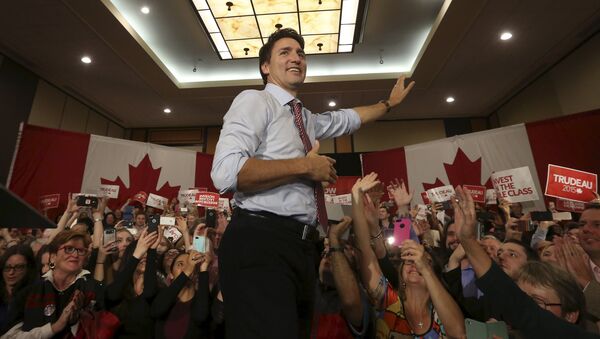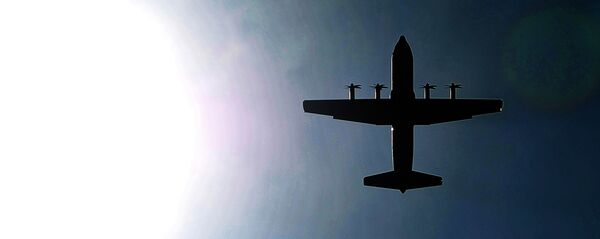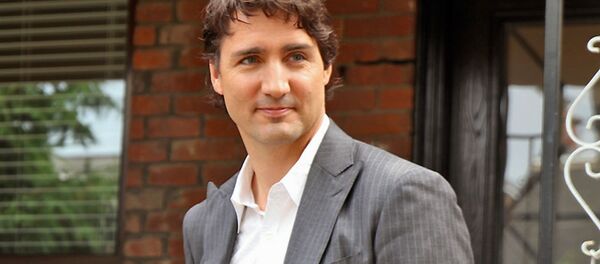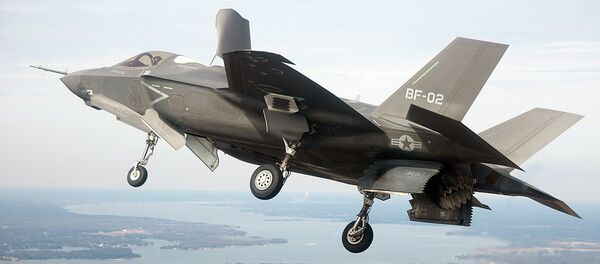Hours after defeating Stephen Harper's Conservatives, Trudeau told President Obama that Canada would soon begin to withdraw its fighters from the US-led coalition's campaign of airstrikes against ISIL in Syria and Iraq. Moreover, analysts have suggested that the Liberals could now very well back out of the Harper government's commitment to purchase Lockheed Martin's F-35 fighter bombers.
Canadian experts speaking to Sputnik have suggested that there is reason to hope that the Trudeau government will take a softer line on Russia, including over the conflict in Ukraine.
Taking a look at Harper's nine years in office, business newspaper Vzglyad recalled that "when it came to foreign policy, Canada under Harper took up a position as one of the most anti-Russian oriented countries in the world. Ottawa took up a hard pro-US position in relation to the Ukrainian conflict, and was one of the first countries to introduce financial and economic sanctions, along with visa restrictions, against Russia." Furthermore, "on the initiative of Stephen Harper, Canada announced the suspension of all bilateral contacts between the Canadian and Russian military in the Arctic."
The Harper government has repeatedly gone out of its way to reaffirm its anti-Russian position, going so far as to vote against a Russian-sponsored UN resolution last year condemning the glorification of Neo-Nazism. Moreover, this summer, media appeared to show direct evidence of what amounts to Ottawa's participation in regime change in Ukraine, revealing that the Canadian Embassy in Kiev had been used as a safe haven by Maidan protestors in their efforts to topple Viktor Yanukovych in 2014.
Much of the Russian media has attributed Harper's 'tough guy' attitude toward Russia as pandering to his country's large ethnic Ukrainian community, which amounts to over a million people. However, Ukraine was only one of several foreign policy adventures, from Libya to Syria, where the Conservative prime minister apparently sought not only to prove his 'hawkish' stance as America's junior partner, but to fundamentally shift Canada away from its former image as one of the world's great peacekeeping and peacemaking nations.
As far as Justin Trudeau and relations with Russia are concerned, like their Canadian counterparts, most Russian experts put great hopes in the leader's last name.
Trudeau is the son of the late Pierre Elliott Trudeau, a larger-than-life politician who served as prime minister between the late 1960s and the mid-1980s, and who is considered by many observers to be the father of modern Canada.
And while Trudeau Jr. has made no indications that he would take a similarly independent course, in relation to Moscow anyway, Russian analysts have now voiced their hopes that, at least compared to Harper, he will be a much-needed breath of fresh air in relations between the two northern giants.
'Hope for the Future'
Speaking to Vzglyad, Vasily Sokolov, the head of the Canadian department of the Russian Academy of Sciences' Institute for US & Canadian Studies, noted that despite the fact that all three of Canada's major parties, including the Liberals, took a 'tough on Russia' position during the election campaign, an improvement in Moscow's relations with Ottawa may be in the offing.
"It's obvious that this is the position being taken," Sokolov noted, commenting on the Liberals' position showing solidarity with post-Maidan Ukraine. "But this is at least in part a forced position. Canada has many conservative voters, and the Liberals in large part, have to orient themselves toward them. It's unlikely that the young Liberal Party leader has any serious personal issues with Russia. He is the son of Pierre Trudeau, an outstanding political leader who did a lot for Canada, including to improve relations between Canada and the Soviet Union."
Furthermore, Sokolov explained that an improvement in relations may be possible due to the Liberal Party's ideology. "The Liberal Party, in contrast to the Conservatives, is not as pro-American, and this is a positive factor," he noted.
"The Liberals have always stepped out more strongly in favor of Canada's national interests, and for the restriction on foreign capital, especially American capital," Sokolov explained. "Conservatives, by contrast, have always followed a strictly pro-American position. It's worth recalling that Canadian forces did not participate in the US invasion of Iraq; the Liberals were in power, and for this they were severely criticized by Washington. When Harper came to power, relations were quickly patched up."
Despite his optimism, Sokolov does not believe in the possibility of any quick breakthrough. "It's necessary to see how Trudeau's cabinet will look. This will take some time, and a whole range of issues must be considered. But it's heartening that the Liberals received a majority of the seats in parliament —180 out of 338. This will allow them to work steadily over the next four years…Over time, [a thaw in relations] will occur, and contacts will reemerge. From the Russian position, the victory of the Liberal Party gives us some hope for the future."






